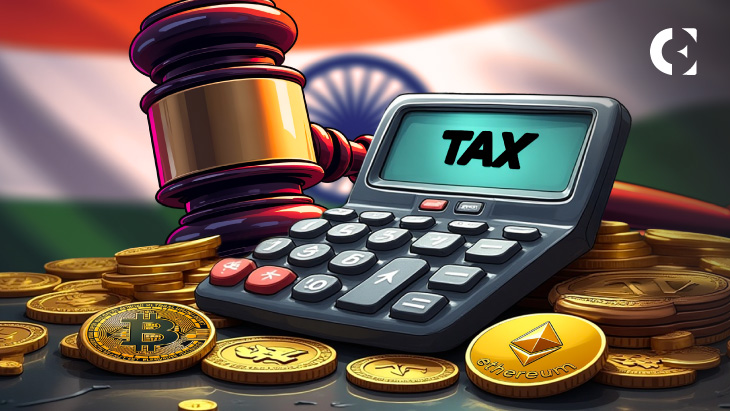- India’s tax department issued notices to individuals over unreported crypto income for 2022-24.
- Enhanced data sharing by exchanges enabled governments to monitor in real-time.
- Authorities seized $327,000 from a cross-border cyber fraud ring and made an arrest.
India’s Income Tax Department has escalated enforcement actions against cryptocurrency tax evaders. They issued notices to thousands of individuals who failed to report digital asset income in their tax filings for financial years 2022-23 and 2023-24. The crackdown utilizes enhanced data-sharing mechanisms between digital asset exchanges and government authorities, enabling real-time transaction monitoring and cross-referencing.
Tax officials have identified discrepancies between taxpayer-reported figures and actual transaction data obtained from digital asset platforms and Tax Deducted at Source (TDS) returns. These inconsistencies have raised red flags over systematic underreporting or complete non-disclosure of income generated through cryptocurrency trading activities.
India Tightens Crypto Tax Enforcement as CBI Arrests Fraud Suspect
The Central Board of Direct Taxes has expressed concern about potential tax evasion and illicit financial flows. They specifically identified a group of ‘high-risk’ investors suspected of channeling untaxed income into virtual digital assets. This selective attention indicates that the authorities are focusing their efforts on cases with the highest potential for high-value revenue recovery.
Impacted taxpayers were invited to rectify their filings by using restated return processes that provide individuals with the ability to change previously submitted returns within stated time limits. The notices urge compliance through voluntary disclosure rather than pursuing immediate punitive measures, though seizure actions indicate serious consequences for non-cooperation.
Raj Kapoor, founder and CEO of India Blockchain Alliance, characterized the enforcement as part of a “sweeping regulatory architecture marked by uncompromising know-your-customer/anti-money laundering stringency, forensic blockchain intelligence integration, and the institutionalization of ex-ante disclosure obligations.”
In a related move, the CBI apprehended Rahul Arora, an Indian resident, allegedly involved in a transnational cyber scam targeting individuals in Canada and the United States. The government agency also seized crypto worth $327,000. He reportedly used advanced tools to impersonate government officials. This incident reflects the broader push by Indian authorities to crack down on crypto-related financial misconduct.
India Maintains Highest Crypto Tax Globally
India’s tax regime on cryptocurrencies is the most stringent in the world, with a uniform 30% tax on all virtual currency earnings, without any loss offset relief. In addition to the tax, a TDS of 1% is applied to all transactions exceeding Rs 10,000 ($116).
Stringent taxation has pushed trading volume away from local exchanges, with research indicating possible losses of $1.2 trillion in trading volume. Local exchanges have sought relief measures from regulators, such as lowering the TDS from 1% to 0.01%, permitting loss offsetting and carry-forward rules, and treating digital asset income in the same manner as other capital assets. The demands have seen little government consideration.
Finance Minister Nirmala Sitharaman reasserted in March 2024 that cryptocurrencies cannot be used as legal tender in India. Still, the government hasn’t put blanket restrictions on digital asset activity.
Related: India Charts Course for Crypto Regulation with June Discussion Paper
Disclaimer: The information presented in this article is for informational and educational purposes only. The article does not constitute financial advice or advice of any kind. Coin Edition is not responsible for any losses incurred as a result of the utilization of content, products, or services mentioned. Readers are advised to exercise caution before taking any action related to the company.







